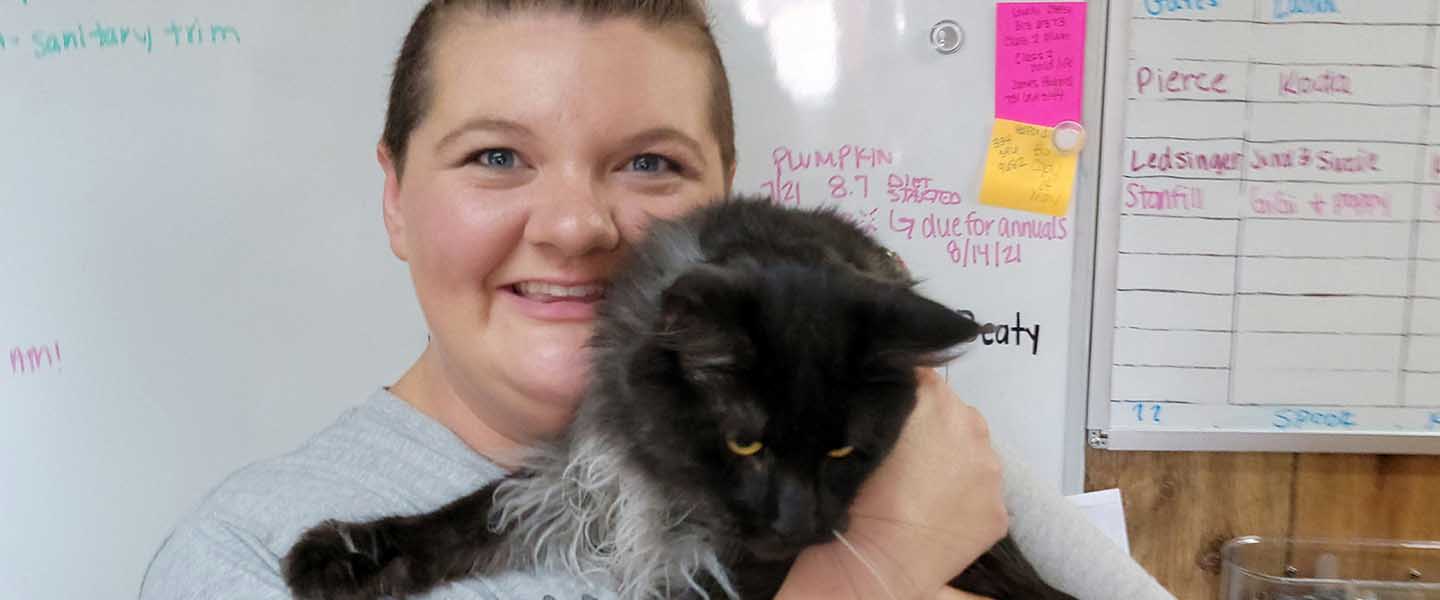FFA alumna Shonna Tart, who works as a veterinarian at Henderson County Animal Clinic in Lexington, Tenn., explains what it’s like to care for animals in a rural areas and how FFA members can prepare for a career in veterinary medicine.
Q: When you applied to vet school at University of Tennessee, Knoxville, was your plan to work with large animals?
A: I went to vet school because of an interest in public health and food animal safety. All through vet school, my plan was to be a food animal veterinarian with a focus on pigs, but it’s really hard to get a job strictly as a large-animal vet.
Q: What makes it hard to get a job strictly as a large-animal vet?
A: It depends on location and how much producers depend on their veterinarian. In Illinois, I worked with a lot of cattle, helping producers pull calves and going on herd visits to vaccinate or castrate cattle. [In rural Tennessee], most producers do that work themselves. If you want to work solely with large animals, you have to find an area where the vets are actually actively involved in the routine maintenance of the animals. There just aren’t many who do that type of work.
Q: What are some of the challenges of working as a veterinarian in a rural area?
A: Being in a rural area, we face a lot of income challenges. Producers don’t always use vets for preventive factors. We get called in for emergencies and, by that point, there is often very little we can do and the things we can do are going to cost more than the animal is worth. Instead of paying for the animal’s care, producers decide to sell it.
Q: What’s the best part of working in a mixed animal practice in a rural area?
A: Sometimes it’s nice just to get out of the clinic. It gives you a little bit of variety and breaks up the monotony, broadening your horizons. You get to know your clients in a small town. It’s more of a close-knit community than you find in a city with thousands and thousands of people.
Q: What advice do you have for FFA members interested in pursuing careers in veterinary medicine?
A: Focus on education because it is very competitive to get into vet school. You have to put in the work. Volunteer at a vet clinic or get a summer job as a kennel assistant and participate in FFA events like livestock judging and animal science classes. Those are good opportunities through which you’ll learn about animals and how to read and handle an animal. Those experiences will come in handy down the road.
—
There’s a CDE for That
Prepare your skills for a career in veterinary medicine with the veterinary science CDE. Visit FFA.org/Participate/CDEs/Veterinary-Science to learn more.












